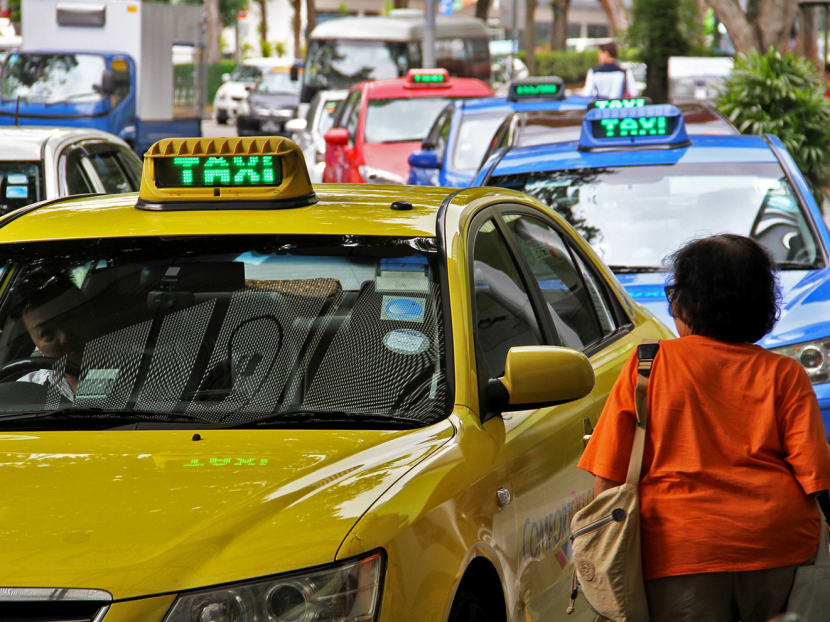Uber rebuts criticism over price cuts, says competition ‘a good thing’
SINGAPORE — Rebutting criticism by the National Taxi Association (NTA) that recent price cuts by private car-sharing apps would hurt drivers and the industry, an Uber top executive yesterday pointed out that competition is “always a good thing”. And contrary to what the taxi group claimed, commuters would ultimately benefit from a contested market, Uber general manager Warren Tseng added.

Taxi drivers TODAY spoke to said they have not felt any impact from the Uber and Grab price cuts. TODAY file photo
SINGAPORE — Rebutting criticism by the National Taxi Association (NTA) that recent price cuts by private car-sharing apps would hurt drivers and the industry, an Uber top executive yesterday pointed out that competition is “always a good thing”. And contrary to what the taxi group claimed, commuters would ultimately benefit from a contested market, Uber general manager Warren Tseng added.
“What we also see when there’s competition is that it makes competitors innovate more and tighten up their operations as well … pushing the envelope and making others innovate as well,” Mr Tseng said at a media session.
The cuts, which were initiated by Uber on April 13, with Grab following suit days later, saw average fares falling by around 15 per cent. To compensate drivers for the revenue loss, Uber has upped the monetary incentives given to their drivers.
The NTA called such cuts “unhealthy and unsustainable”, saying they could hurt drivers’ earnings as well as the taxi industry as a whole.
Mr Tseng said based on Uber’s observations, as well as findings from other cities, such cuts could stabilise drivers’ earnings, and in some cases, help them earn more.
Uber’s cut might not be permanent, with Mr Tseng calling it an “experiment”, noting it will take three to four weeks for any meaningful data to be generated. “(The) price cuts are 95 per cent determined by the data, so we look at the data behind the drivers’ earnings, downtime, demand dynamics of the marketplace, and will make adjustments based on that,” he added.
As for concerns over aggressive bidding for Certificates of Entitlement (COEs) by Uber and Grab crowding out private-car owners, Mr Tseng pointed out that 96 per cent of the time, private cars are left idle. “If more (private) cars are servicing the community, maybe using (them) as a ride-sharing platform, ultimately that’s good for public transportation,” he said.
Uber driver Jay Lim, 55, said demand has gone up since the price cut, from less than two trips per hour to around three trips per hour, over a period of six hours last Sunday.
Speaking at the media session, Mr Lim also pointed out that Uber increased incentives for drivers to top up the difference after the cut.
Another Uber driver, who wanted to be known only as Mr Tan, said it became easier to find riders after the price cuts, but he was worried that Uber may eventually pass the cost of the lower fares to drivers. “We won’t be incentivised to drive if they did so,” he said.
Taxi drivers TODAY spoke to said they have not felt any impact from the Uber and Grab price cuts. “I don’t think Uber and Grab will be able to sustain their discounts. Right now, it hasn’t affected us taxi drivers much,” said cabbie Lai Seng Lim, 63.
Mr Poh Guan Han, 58, who has been a Comfort taxi driver for over 10 years, concurred. “I have given my customers similar discounts as well out of my own pocket,” he added. CLIFFORD LEE






